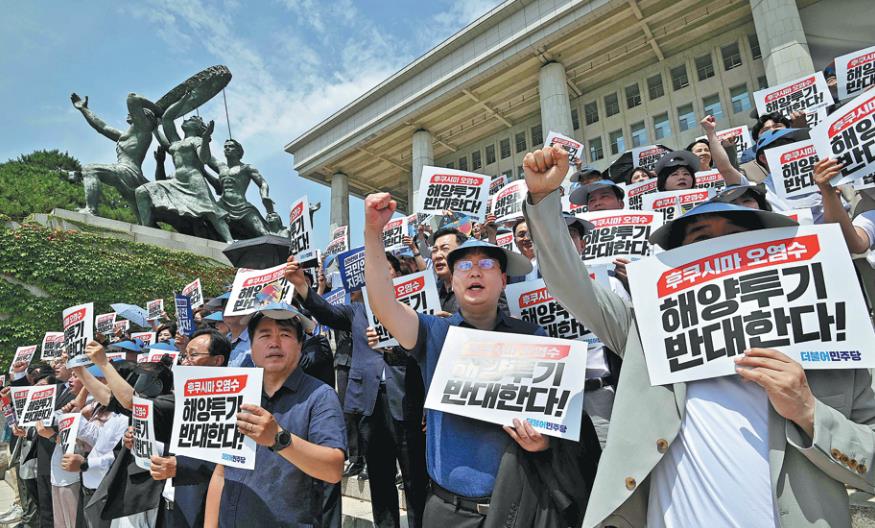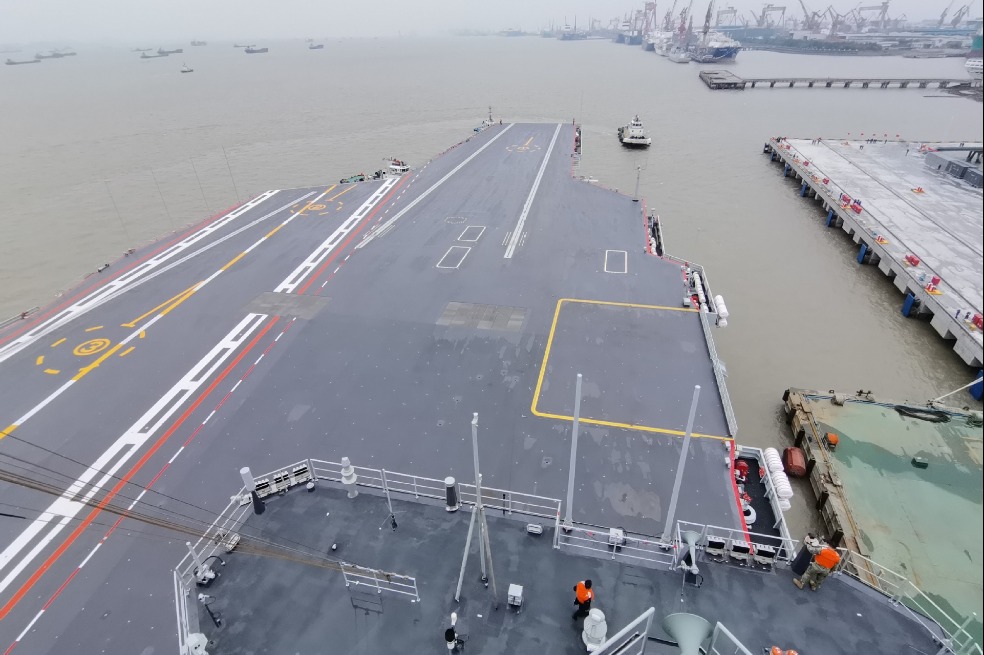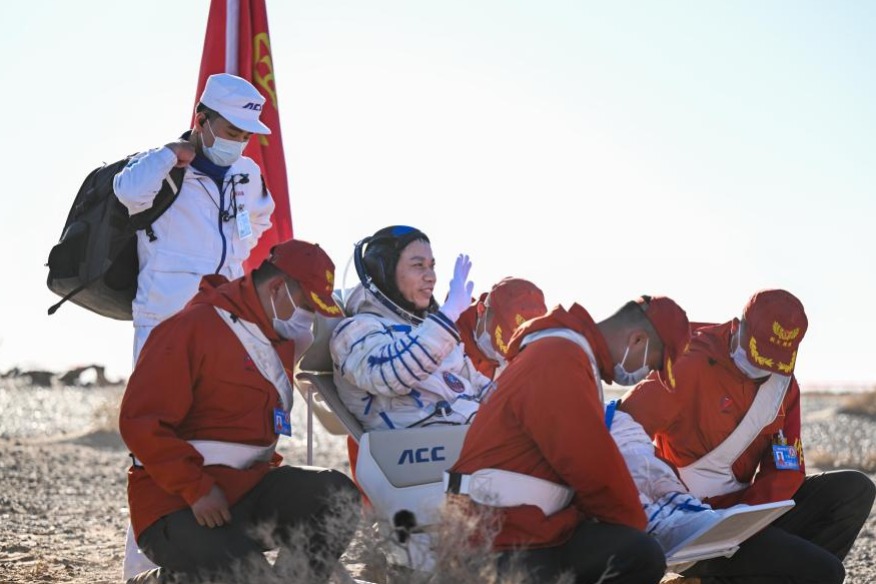Discharge poses 'serious threat' to sea
China Daily | Updated: 2023-07-08 07:18
S. Korean party voices concern as Japan approves release of Fukushima water

SEOUL/TOKYO — Japan's planned discharge of nuclear-contaminated water into the Pacific Ocean will pose a serious threat to the world's oceans, lawmakers from South Korea's main opposition Democratic Party said.
It came as Japan's nuclear regulator granted approval on Friday for Tokyo Electric Power Company, which ran the destroyed Fukushima Daiichi nuclear power plant, to start releasing more than 1 million metric tons of such water and the South Korean government said it respected the International Atomic Energy Agency's review, despite concerns over safety in many countries and signs of a consumer backlash at home.
Japan's discharge plan has encountered widespread public opposition and protests in South Korea, and even panic-buying of salt based on fears that the Fukushima water would pollute the ocean and the salt sourced from seawater. The largest fisheries market in Seoul is stepping up testing, Reuters reported.
IAEA head Rafael Grossi was scheduled to visit Seoul from Friday, but the agency's review has not alleviated strong opposition, with some lawmakers even going on hunger strike in protest. Even Grossi himself on Friday hinted at disagreement among experts behind the report.
China's Foreign Ministry spokesman Wang Wenbin said the conclusion in the IAEA's report approving Japan's ocean discharge plan "has limitations and is one-sided", and fails to address the world's concerns about the plan.
The report was issued hastily and does not fully reflect views of experts from all parties who have participated in reviewing Japan's plan, Wang said at a daily briefing on Friday.
"The IAEA's director-general has said the institution does not endorse any country's ocean discharge of nuclear-contaminated water," Wang said, urging Japan to "give up using the IAEA's report as a green light for its ocean discharge plan".
Wang pointed out that the IAEA did not assess the effectiveness and long-term reliability of Japan's facilities to treat nuclear-contaminated water, and cannot guarantee that all the contaminated water discharged over the next three decades will be treated according to standards, Wang pointed out.
"No matter what the Japanese side does to 'whitewash' the harm of the nuclear-contaminated water, it will not succeed in slipping through the world," Wang said.
Several reactors at the Fukushima plant went into meltdown after cooling systems were overwhelmed by a massive earthquake and an ensuing tsunami in 2011. The resulting nuclear accident was the worst since Chernobyl.
"The discharge of contaminated water from the plant poses a serious threat to the world's oceans," Wi Seong-gon, a Democratic Party lawmaker and chief of the party's prevention committee on the release of Fukushima water, told a news conference with foreign correspondents on Thursday.
"Many experts believe that the discharge plan is an unprecedented event in history and will have a devastating impact on the health and lives of current and future generations."
It "is not the only solution", said Chu Chul-hyun, another Democratic Party lawmaker.
Woo Won-shik, the Democratic Party lawmaker who has been on a hunger strike for 11 days, said: "It is hard for me to understand why Japan wants to choose the discharge option harming the neighboring countries."
Woo said a big question hanging over the minds of South Koreans is why the United States has said nothing about it. He urged the international community to oppose the discharge together as it is a clear violation of international law and leaves a bad precedent in the history of humankind.
"If the contaminated water release is allowed this time, do we have to allow another discharge into the ocean every time similar accidents happen in future?" Woo said. "The international community has to answer this."
Wang Qingyun in Beijing contributed to this story.
Xinhua - Agencies
























